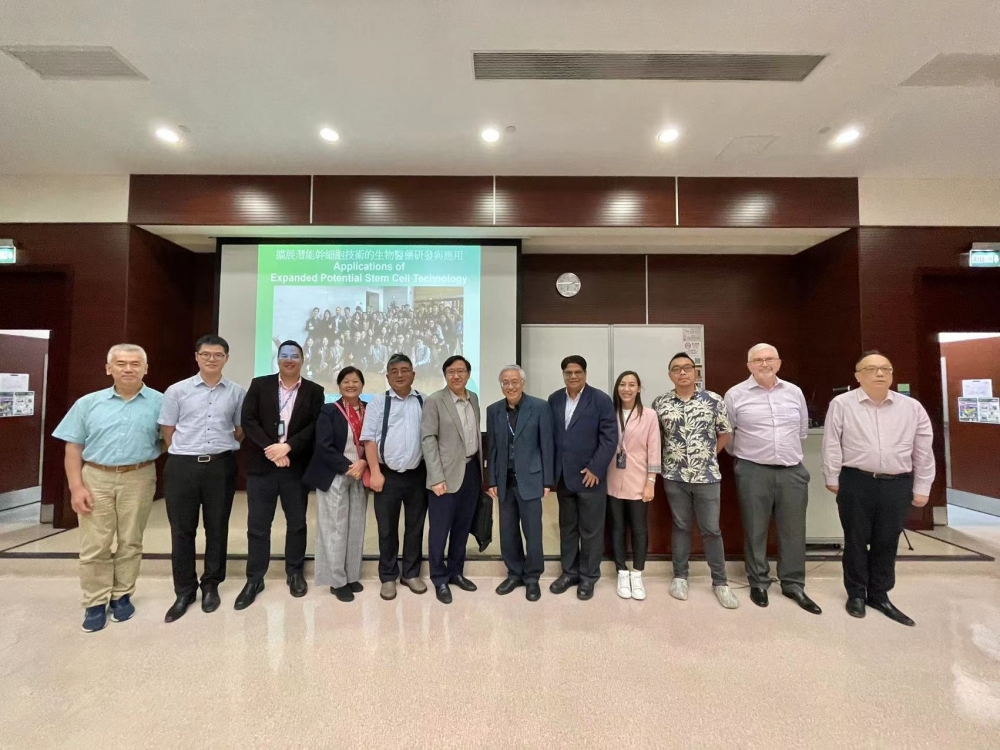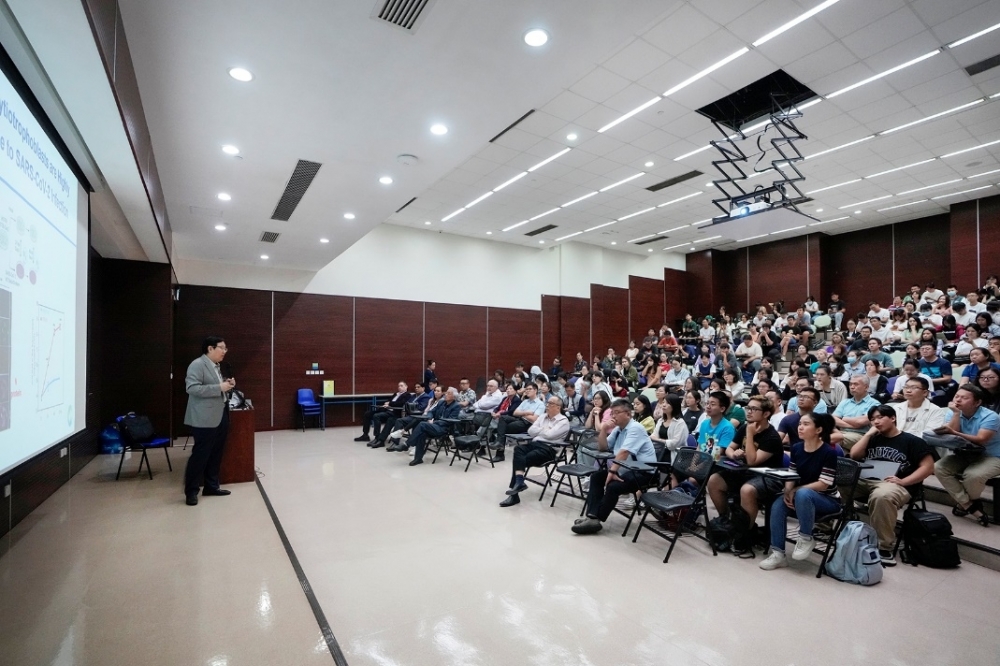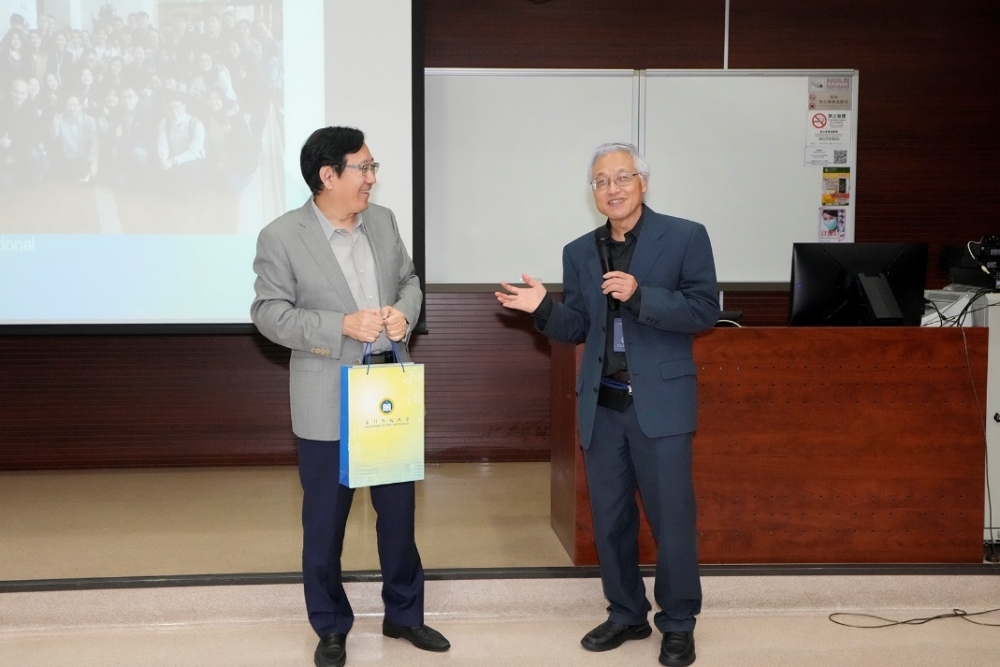On 20 September 2023, Professor Pengtao Liu, School of Biomedical Sciences, HKU, at the invitation of Medical Sciences Division(MSD), MUST, delivered a lecture on the topic of Expanded Potential System Cells - a New Tool for Basic and Translational Research for researchers and students at MSD Bio-Medicine Research Seminar. Guests attending the Seminar included Chair Prof. Tam Kwong-Hang, Vice President of Macau University of Science and Technology, Chair Prof. Zhu Yi-Zhun, Associate Vice President of Macau University of Science and Technology, Mrs. Tze Shan Yu, Director of Innovation & Entrepreneurship, MSD teachers, researchers and students.

Group Photo
Prof. Pengtao Liu is a biologist and a geneticist with a long-standing interest in stem cells, development and immunity. Prof. Liu was born in China. He graduated from Henan Normal University with a BS degree in Biology and from Institute of Genetics, Chinese Academy of Sciences with MPhil. Prof. Liu received a Ph.D. from Baylor College of Medicine. He did postdoc training at National Cancer Institute USA. Prof. Liu joined the faculty of the Wellcome Trust Sanger Institute in Cambridge, U.K. He was recruited to the Faculty of Medicine of the HKU as a professor. Prof. Liu heads Centre for Translational Stem Cell Biology aiming to develop new stem cell technologies, produce clinically relevant cell products and drug candidates.

Seminar Site
In the Seminar, Prof Liu discussed his research on the creation of mouse Expanded Potential Stem Cells (EPSCs). These EPSCs can be generated through direct conversion of embryonic stem cells (ESCs) or somatic cell reprogramming, making them similar to iPSCs but with expanded potential. Detailed molecular analyses of the epigenome and single-cell transcriptome by Prof Liu’s research team revealed that EPSCs exhibited characteristics similar to cleavage stage embryos. Importantly, Prof Liu extended his research to the establishment of EPSCs in humans, pigs, bovines, and other mammalian species. What's particularly promising is that EPSCs were found to be genetically and epigenetically stable, allowing for their long-term maintenance in homogeneous cultures and efficient precision genome editing. This discovery opens up exciting avenues for research in normal development and has far-reaching implications in biotechnology, agriculture, and regenerative medicine.
One practical application discussed was the susceptibility of early syncytiotrophoblasts generated from human TSCs to coronavirus infection and their sensitivity to antiviral treatment. This finding has important implications in the advancement stem cell-based antiviral drug discovery.
At the end of the seminar, Professor Liu had a lively discussion with the researchers and students present. After the lecture, Prof. Tam Kwong Hang, presented Professor Liu with a souvenir of the university.

Prof. Tam Kwong Hang presented Professor Liu with a souvenir
